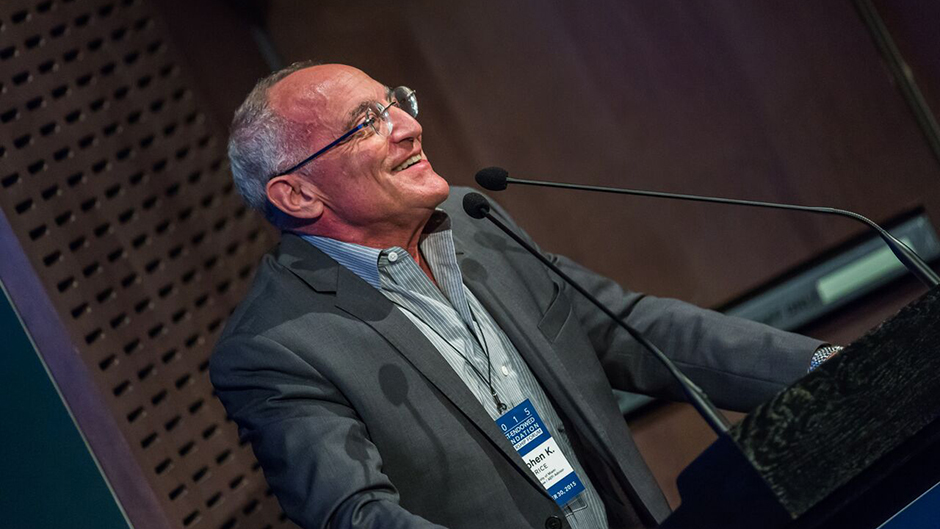Miami Law, in conjunction with the Aspen Institute’s Artist-Endowed Foundations Initiative (“AEFI”), recently held the 2015 Artist-Endowed Foundation Leadership Forum, hosted by The Museum of Modern Art in New York. The Forum was sponsored by The Hoffman Forum, which was created through the generosity of Larry J. Hoffman, JD ’54, and Debi Hoffman, JD ’83.
Miami Law Professor Stephen Urice, who is also the Art track advisor for the School's LL.M. in Entertainment, Arts and Sports Law, co-directed the Forum with Christine Vincent, AEFI Project Director.
The Forum brought together senior leaders of artist-endowed foundations to exchange ideas and learn about issues and innovations in policy and practice influencing their organizations individually and the field as a whole. Seventy-eight leaders of foundations in the United States and the European Union attended the Forum, including the directors of the Roy Lichtenstein Foundation, Robert Rauschenberg Foundation and Andy Warhol Foundation for the Visual Arts. In total, approximately 120 people participated in the event.
The Forum’s agenda explored a variety of topics ranging from new technologies in art authentication to leadership challenges navigating the life cycle of a foundation. The day also featured a memorable keynote presentation by renowned American contemporary artist and MacArthur Fellow, Mark Bradford, and Ford Foundation President Darren Walker.
In a lively discussion led by Vincent, Walker and Bradford described how artists can affect social change through the creation of their own foundations. Bradford himself cofounded the Art + Practice Foundation to empower foster youth and strengthen the local community of his childhood neighborhood in Los Angeles.
The Forum underscored the importance of these foundations realizing their charitable potential. Vincent pointed out that “the artist-endowed foundation field is of significant interest to the arts and funding communities given its role as a new force in cultural philanthropy, and in the stewardship of the country's post-war and contemporary artistic heritage. This is a young field whose potential influence substantially outweighs its still modest scale.”
Vincent also explained that the Forum was key to furthering AEFI’s mission of helping to strengthen the charitable impact of the emerging artist-endowed foundation field. AEFI achieves this mission through research, publication and knowledge-sharing programs.
In 2010 the Aspen Institute published the two-volume, 900-page National Study of Artist-Endowed Foundations, the first effort to define and describe artist-endowed foundations in the United States, and provide scholarly resources on emerging issues in the field. Since then, AEFI has published regular updates to the original report.
Miami Law was well represented at the event. Professor Urice, who is the Advisor for the Art Track in the LL.M. in Entertainment, Arts and Sports Law and teaches courses in Art Law and Trusts and Estates, moderated the Forum’s first panel. The panel examined the effect that the College Art Association’s newly introduced Code of Best Practices in Fair Use for the Visual Arts will have upon artist-endowed foundations. Later in the day, Professor Caroline Bradley moderated a passionate discussion of resale royalty rights as a potential charitable resource for artist-endowed foundations in the U.S., exemplified by their peers in the European Union. Dean Patricia White provided opening and closing remarks to the day’s activities. In comments at the start of the day, Dennis Scholl, JD ’81, spoke with appreciation of the Hoffmans’ generous gift which created a platform to convene thought leaders around significant public policy issues. The Hoffmans attended the day’s events.
Two Miami Law students, Katherine Brennan and Lionel Yarmon, also assisted as interns for the Forum. Both students are enrolled in the new Entertainment, Arts and Sports Law LL.M., an innovative degree program directed by Harold Flegelman.

